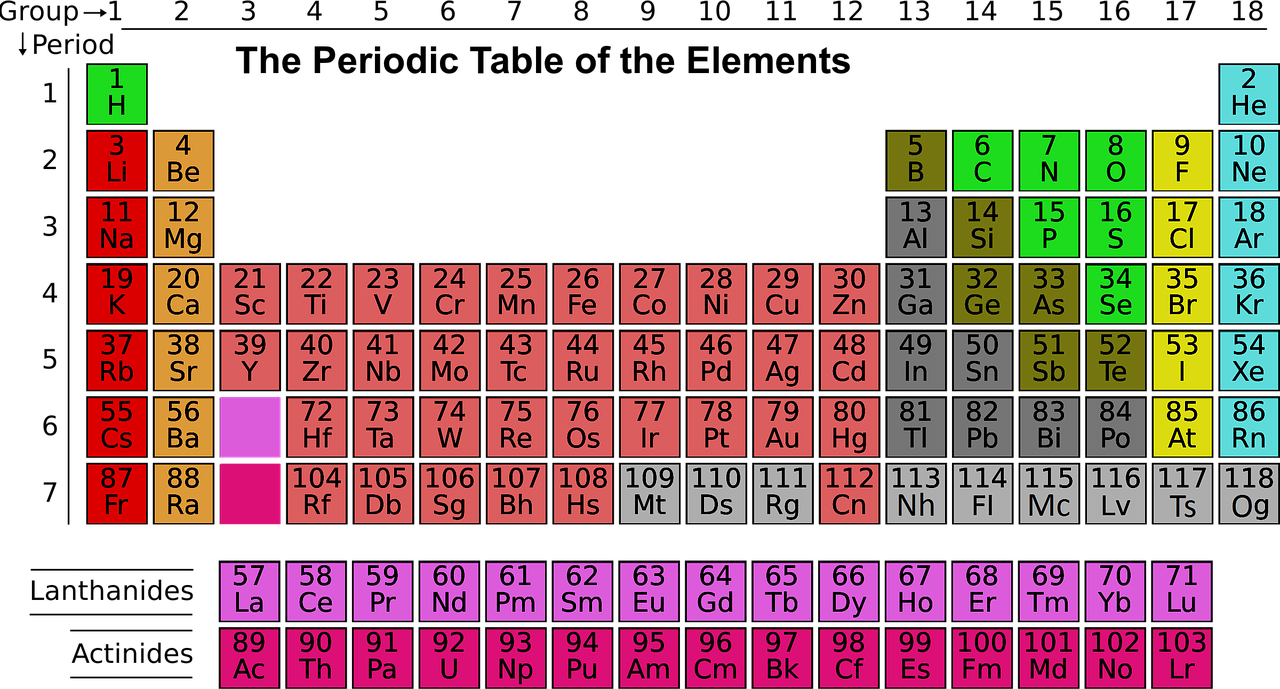
Which of the following has highest density:
A. Ne
B. Ar
C. He
D. Xe
Answer
233.1k+ views
.Hint:. periodic table is a great source of information about the elements and their relation to each other. Changes of different periodic properties. Also, this helps to predict the properties of the elements even if they are not discovered. Inert gases are from group 18. Which is on the extreme right side of the periodic table.
.Complete step by step answer:.
To answer this question the periodic properties of the elements from the different groups should be known. The periodic properties have opposite trends between left to right and top to bottom.The elements in periodic tables are arranged in a way that every element of each group shows similar physical characteristics and chemical characteristics.

In the periodic table, all the elements are arranged by the atomic numbers. Generally, on the left side of the periodic table, elements are metallic in nature. Moving from left to right the metallic character decreases and the non-metallic character increases. At the extreme right elements are non-metallic in nature.
In the case of inert gases, the force of attraction is weak Van Der Waals interaction, which depends on the size of the element. With the increasing size of the element Vander Waal interaction increases, therefore, the down the group the molecular mass increases and also due to strong attraction force the density also increases.
Therefore, among all in the given option, Xenon is the bottom element in group 18 of the periodic table. So, the density is highest for xenon.
So, the correct option is, D.
Note: Xenon is an inert gas. Its electronic configuration is$[Kr]4{d^{10}}5{s^2}5{p^6}$. All orbitals that are filled have paired electrons. Xenon can combine with an even number of F atoms to form $Xe{F_2}$, $Xe{F_4}$ and $Xe{F_6}$. This is because the promotion of 1, 2, or 3 electrons from the 5p filled orbitals to 5d vacant orbitals will give rise to $2,4,6$ half-filled orbitals. But it cannot combine with an odd number of F –atoms.
Thus, the formation of $Xe{F_3}$ and $Xe{F_5}$ is not possible.
.Complete step by step answer:.
To answer this question the periodic properties of the elements from the different groups should be known. The periodic properties have opposite trends between left to right and top to bottom.The elements in periodic tables are arranged in a way that every element of each group shows similar physical characteristics and chemical characteristics.

In the periodic table, all the elements are arranged by the atomic numbers. Generally, on the left side of the periodic table, elements are metallic in nature. Moving from left to right the metallic character decreases and the non-metallic character increases. At the extreme right elements are non-metallic in nature.
In the case of inert gases, the force of attraction is weak Van Der Waals interaction, which depends on the size of the element. With the increasing size of the element Vander Waal interaction increases, therefore, the down the group the molecular mass increases and also due to strong attraction force the density also increases.
Therefore, among all in the given option, Xenon is the bottom element in group 18 of the periodic table. So, the density is highest for xenon.
So, the correct option is, D.
Note: Xenon is an inert gas. Its electronic configuration is$[Kr]4{d^{10}}5{s^2}5{p^6}$. All orbitals that are filled have paired electrons. Xenon can combine with an even number of F atoms to form $Xe{F_2}$, $Xe{F_4}$ and $Xe{F_6}$. This is because the promotion of 1, 2, or 3 electrons from the 5p filled orbitals to 5d vacant orbitals will give rise to $2,4,6$ half-filled orbitals. But it cannot combine with an odd number of F –atoms.
Thus, the formation of $Xe{F_3}$ and $Xe{F_5}$ is not possible.
Recently Updated Pages
JEE Main 2023 April 6 Shift 1 Question Paper with Answer Key

JEE Main 2023 April 6 Shift 2 Question Paper with Answer Key

JEE Main 2023 (January 31 Evening Shift) Question Paper with Solutions [PDF]

JEE Main 2023 January 30 Shift 2 Question Paper with Answer Key

JEE Main 2023 January 25 Shift 1 Question Paper with Answer Key

JEE Main 2023 January 24 Shift 2 Question Paper with Answer Key

Trending doubts
JEE Main 2026: Session 2 Registration Open, City Intimation Slip, Exam Dates, Syllabus & Eligibility

JEE Main 2026 Application Login: Direct Link, Registration, Form Fill, and Steps

Understanding the Angle of Deviation in a Prism

Hybridisation in Chemistry – Concept, Types & Applications

How to Convert a Galvanometer into an Ammeter or Voltmeter

Understanding the Electric Field of a Uniformly Charged Ring

Other Pages
JEE Advanced Marks vs Ranks 2025: Understanding Category-wise Qualifying Marks and Previous Year Cut-offs

Hydrocarbons Class 11 Chemistry Chapter 9 CBSE Notes - 2025-26

Thermodynamics Class 11 Chemistry Chapter 5 CBSE Notes - 2025-26

Equilibrium Class 11 Chemistry Chapter 6 CBSE Notes - 2025-26

Organic Chemistry Some Basic Principles And Techniques Class 11 Chemistry Chapter 8 CBSE Notes - 2025-26

NCERT Solutions For Class 11 Chemistry Chapter 7 Redox Reactions (2025-26)




